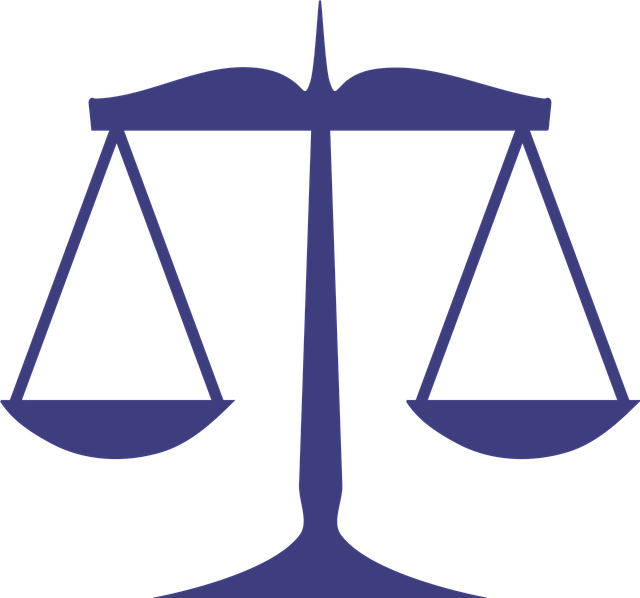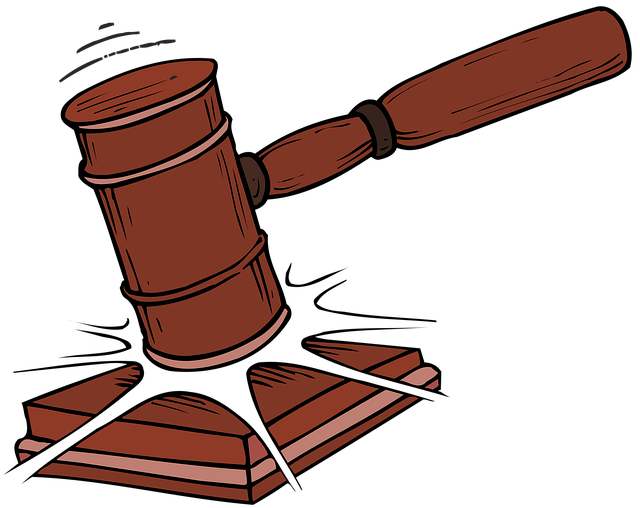Navigating Legal Challenges in Evolving Healthcare Regulations

Healthcare faces complex Legal Challenges in Healthcare Regulations with evolving laws on privacy, d…….
In the rapidly evolving healthcare sector, regulatory compliance is an intricate dance, presenting a myriad of legal challenges that demand constant attention and adaptation. This comprehensive article delves into the multifaceted world of healthcare regulations, exploring their global impact, economic implications, technological integrations, and the ongoing policy debates shaping this critical domain. By examining these aspects, we aim to provide valuable insights for stakeholders, policymakers, and practitioners navigating the complex landscape of legal challenges in healthcare.
The healthcare industry, characterized by its life-saving nature and constant innovation, operates within a web of laws and regulations designed to ensure quality care, protect patients, and promote public health. However, these regulatory frameworks are not static; they evolve with technological advancements, shifting societal norms, and the relentless pursuit of improved healthcare outcomes. This dynamic environment presents both opportunities for progress and complex legal hurdles that require meticulous navigation.
Definition: Legal challenges in healthcare regulations refer to the diverse legal issues and obstacles faced by healthcare providers, organizations, and policymakers when implementing and adhering to regulatory frameworks. These challenges span a wide range of topics, including data privacy, informed consent, drug approvals, clinical trials, insurance coverage, and access to care, among others.
Core Components:
Compliance and Enforcement: Ensuring that healthcare entities adhere to the set regulations involves complex monitoring, auditing, and enforcement mechanisms. Non-compliance can lead to legal repercussions, financial penalties, and damage to reputation.
Patient Rights and Welfare: Protecting patient autonomy, privacy, and safety is a fundamental aspect of healthcare regulation. Balancing these rights with operational demands is an ongoing challenge.
Ethical Considerations: Healthcare regulations often grapple with ethical dilemmas, such as organ donation, end-of-life care, clinical research ethics, and the distribution of scarce medical resources.
Legal Jurisdiction and Harmony: With healthcare being a primarily regulated sector, ensuring consistency and harmony in laws and regulations across different jurisdictions is a complex task, especially in diverse legal systems.
Historical Context: The evolution of healthcare regulations traces back to ancient civilizations, where basic public health measures were implemented to control infectious diseases. However, the modern era saw a significant shift with the rise of medical technology and specialized care. In response, governments worldwide began enacting comprehensive healthcare laws to address emerging issues like drug safety, medical malpractice, and equitable access to healthcare.
Over time, these regulations have become increasingly sophisticated, incorporating international standards, human rights principles, and advances in medical science. The historical context highlights the continuous evolution of legal challenges, from ensuring basic sanitation to managing complex clinical trials and data privacy concerns.
The impact of legal challenges in healthcare regulations is not confined to individual nations; it resonates across borders, influenced by global health initiatives, trade agreements, and migration patterns.
International Influence: International organizations like the World Health Organization (WHO) play a pivotal role in setting global health standards and guidelines, which indirectly shape national healthcare regulations. The WHO’s efforts to combat antimicrobial resistance, for instance, have led many countries to implement stringent drug approval processes.
Regional Variations: Legal frameworks vary significantly across regions, reflecting diverse cultural, political, and economic contexts. For example, the European Union (EU) has a unified approach to data protection through the General Data Protection Regulation (GDPR), while individual member states maintain their autonomy in healthcare service delivery. In contrast, countries like the United States operate within a federal system, with varying regulations at state levels.
Key Global Trends:
Digital Health Integration: The rise of digital health technologies has introduced new legal challenges related to data privacy, security, and intellectual property rights.
Global Health Crises: Pandemics, such as COVID-19, have exposed vulnerabilities in healthcare regulations, prompting urgent measures while raising questions about emergency versus long-term regulatory strategies.
Access and Equity: Addressing healthcare disparities and ensuring equitable access to quality care remains a global priority, driving efforts to harmonize regulations and policies.
Healthcare regulations significantly impact economic systems, influencing market dynamics, resource allocation, and investment patterns.
Market Dynamics: Regulatory frameworks shape the competitive landscape of the healthcare industry, affecting pricing strategies, market entry barriers, and the development of new products and services. For instance, strict drug pricing regulations can influence pharmaceutical companies’ investment decisions.
Investment Patterns: The level of regulatory uncertainty can deter or attract investments in healthcare infrastructure, research, and development. Countries with stable, well-defined regulations often become attractive destinations for healthcare investors.
Economic Impact:
Technology is a double-edged sword, presenting both opportunities and legal challenges in healthcare regulations.
Significant Advancements:
Telemedicine and Digital Health: These innovations have revolutionized remote patient monitoring and access to care, especially during global health crises. However, they raise concerns about data privacy, security, and the need for standardized digital health standards.
Artificial Intelligence (AI) in Healthcare: AI has immense potential for improving diagnosis, treatment plans, and research. Yet, it poses ethical questions regarding algorithmic bias, patient consent for AI-driven decisions, and liability in case of errors.
Genomics and Personalized Medicine: Advances in genomics have led to tailored treatments, but they also raise issues related to genetic data privacy, insurance discrimination, and access to genetic testing.
Impact and Future Potential:
The landscape of healthcare policies and regulations is diverse, with each jurisdiction adopting its own approach based on unique historical, cultural, and political factors.
Key Policies and Regulations:
Drug Approvals: Regulatory bodies like the US Food and Drug Administration (FDA) or the European Medicines Agency (EMA) assess drug safety and efficacy before approval, setting standards for clinical trials and labeling requirements.
Clinical Trials: International guidelines, such as those from the International Conference on Harmonisation (ICH), provide a framework for conducting clinical research, ensuring ethical practices and data integrity.
Health Insurance and Coverage: Policies dictate which services are covered, how much patients pay out of pocket, and the roles of public and private insurance providers.
Data Privacy Laws: Regulations like the GDPR in Europe or the Health Insurance Portability and Accountability Act (HIPAA) in the US protect patient data, setting rules for data collection, storage, and sharing.
Influence on Development: These policies and regulations guide healthcare practices, influence research directions, and shape industry strategies. They are essential tools for ensuring public health, managing healthcare costs, and fostering innovation within ethical boundaries.
The legal landscape of healthcare regulations is not without its challenges and criticisms, many of which stem from the dynamic nature of technology, global health disparities, and evolving societal expectations.
Main Challenges:
Regulatory Burdens and Compliance Costs: Stringent regulations can impose significant compliance costs on healthcare providers, especially small practices, leading to concerns about accessibility and sustainability.
International Harmonization: Achieving consistency in regulations across borders is challenging due to differing legal systems and political priorities, hindering global health initiatives.
Ethical Dilemmas: Healthcare regulations often grapple with complex ethical issues, making it difficult to establish universally accepted guidelines, especially in areas like organ donation, end-of-life care, and clinical research ethics.
Technological Outpacing of Regulations: The rapid pace of technological advancement sometimes outpaces regulatory responses, creating legal loopholes and concerns about data privacy, security, and liability.
Criticisms and Proposed Solutions:
Case Study 1: COVID-19 Vaccination Programs
During the global COVID-19 pandemic, many countries successfully implemented vaccination programs while navigating complex regulatory challenges. Australia’s approach is noteworthy for its swift approval process and effective communication strategy. The Therapeutic Goods Administration (TGA) prioritized COVID-19 vaccine assessments, ensuring rigorous safety and efficacy testing while providing transparent updates to the public. This case demonstrates how flexible yet stringent regulations can facilitate a global health response.
Lessons Learned:
Case Study 2: Telemedicine in Rural Areas
In the United States, telemedicine has been instrumental in providing healthcare services to underserved rural communities. Regulations allowing for broader telemedicine practices during the COVID-19 pandemic have improved access to care and reduced healthcare disparities. This initiative highlights how regulatory changes can empower technology to bridge healthcare gaps.
Lessons Learned:
The future of legal challenges in healthcare regulations is shaped by ongoing technological advancements, global health initiatives, and evolving societal expectations.
Emerging Trends:
AI and Machine Learning Regulation: As AI becomes more integrated into healthcare, regulatory frameworks will need to address issues like algorithmic transparency, bias mitigation, and liability for AI-assisted decisions.
Genomics and Precision Medicine: The rise of genomics requires updated regulations to protect genetic data while encouraging research that benefits individual patients and populations.
Digital Health Security: With the increasing reliance on digital health technologies, ensuring cybersecurity and data privacy will be paramount, necessitating robust legal frameworks.
Strategic Considerations:
Global Harmonization Efforts: International collaboration through organizations like the WHO can facilitate the development of globally acceptable standards, reducing regulatory burdens on multinational healthcare companies.
Adaptive Regulation: Regulatory bodies should adopt adaptive approaches, allowing for swift adjustments to address emerging challenges while maintaining integrity and public trust.
Public-Private Partnerships: Collaboration between governments, industry leaders, and patient advocacy groups can lead to more effective regulation, ensuring that policies reflect real-world needs and expectations.
Legal challenges in healthcare regulations are an ever-evolving aspect of the healthcare sector, demanding continuous navigation and adaptation. From ensuring data privacy to promoting equitable access to care, these legal issues shape the quality and accessibility of healthcare services worldwide.
As technology advances, global health initiatives gain momentum, and societal expectations evolve, regulatory frameworks must keep pace. The case studies presented in this article illustrate successful applications and the lessons learned from navigating these challenges. By embracing collaboration, adaptability, and innovative solutions, stakeholders can ensure that legal regulations support rather than hinder the delivery of quality healthcare.
Q: How do global health crises like pandemics impact healthcare regulations?
A: Global health crises often lead to temporary deviations from existing regulations to expedite responses. For example, during the COVID-19 pandemic, many countries relaxed certain rules related to drug approvals and clinical trials to accelerate vaccine development and treatment access.
Q: What role does public opinion play in healthcare regulation?
A: Public opinion significantly influences healthcare regulations, especially regarding patient rights, privacy, and equitable access to care. Governments and regulatory bodies often consider public feedback when drafting or amending policies to ensure they reflect societal values and expectations.
Q: How can technology help improve compliance with healthcare regulations?
A: Technology can streamline compliance processes through automated data management, digital record-keeping, and advanced analytics for risk assessment. For instance, electronic health records (EHRs) facilitate secure data sharing while reducing administrative burdens related to manual documentation.
Q: What are some key considerations when drafting regulations for emerging technologies like AI in healthcare?
A: When regulating AI in healthcare, key considerations include ensuring algorithmic transparency, establishing guidelines for bias mitigation in AI algorithms, defining liability and accountability frameworks, and protecting patient data during AI-driven decision-making processes.
Q: How can international collaboration improve global health regulations?
A: International collaboration through organizations like the WHO enables the sharing of best practices, harmonization of standards, and coordinated responses to global health challenges. This cooperation fosters a more cohesive regulatory environment, promoting equitable access to quality healthcare worldwide.

Healthcare faces complex Legal Challenges in Healthcare Regulations with evolving laws on privacy, d…….

Healthcare regulations present significant legal challenges due to their intricate nature and consta…….

Corporate crime investigations in healthcare face complex challenges due to legal challenges in heal…….

Legal Challenges in Healthcare Regulations drive securities class actions addressing investor losses…….

The legal landscape of public corruption charges in healthcare regulations involves complex federal…….

Mail wire fraud in healthcare, facilitated by digital communication and sophisticated tactics like p…….

Navigating complex legal challenges in healthcare regulations is critical for providers, pharmaceuti…….

Healthcare settings face unique legal challenges due to stringent regulations, requiring strategic l…….

Healthcare faces significant legal challenges due to complex and evolving regulations focused on pat…….

Healthcare lawsuits present complex legal challenges rooted in intricate regulations covering patien…….